The European Research Council marks 5 years of funding to over 2,500 top researchers
After five years of existence, the ERC has funded more than 2,500 excellent researchers of 53
different nationalities working in some 480 different institutions across Europe. The total funding
allocated to date, € 4.2 billion, has given them a chance to conduct their projects in Europe, of
which many will spark new and sometimes unpredictable scientific and technological discoveries. The
ERC is one of the instruments that addresses the current "brain drain": it has also allowed
researchers to remain in or come to Europe, to gain scientific independence, and to hire and train
a new generation of young researchers recruited as team members in their laboratories. In total,
the ERC has therefore contributed to supporting over 12,000 researchers, thereby helping to fuel
Europe's long-term economic prosperity.
In a video message, President of the European Commission José Manuel Barroso said: "
The ERC has become a remarkable story for Europe in such a short time. Five years dedicated to
supporting 2,500 of the very best and brilliant minds – not least the younger talents – play a key
role in stimulating competitiveness and growth, in the challenging times we are going
through".
The ERC funds basic research across the entire spectrum of disciplines; ranging from studying
the epidemiology of diseases like malaria or the causes of Parkinson, to improving critical
infrastructures such as telecoms networks or water systems, creating new prototypes of chemical
robots or discovering archaeological treasures in Africa.
EU Commissioner for Research, Innovation and Science Máire Geoghegan-Quinn said: "
I am always impressed by the creativity and curiosity of the many ERC grantees I meet. The ERC
is now recognised within and outside Europe as a model for frontier research funding. That is why
the Commission has proposed a substantial increase of the ERC's budget under the EU's next research
and innovation programme, Horizon 2020".
In only five years, the ERC has become a label of excellence recognised by the scientific
community; its peer review evaluation system, the amount and the duration of ERC grants, but also
their flexibility which includes the possibility to move host institution while keeping the grant,
have become key features for individual researchers to boost their careers. To date, the ERC counts
four Nobel Prize winners and three Field Medallists amongst its grantees, as well as the winners of
30 more internationally recognised prizes.
Ahead of this five year milestone, ERC President Professor Helga Nowotny commented: “
The ERC's fifth anniversary is the right moment to demonstrate the experience the ERC has gained
in funding frontier research. It is not too much to say that the ERC has changed the scientific
landscape in Europe and induced the emergence of a genuine European culture of scientific
excellence". She also declared:
"With hard work, vigorous support from many sides and a bit of luck, we were able to create a
well-functioning, first-rate funding agency which has left its indelible mark within a very short
period of time. It fills us with joy to see ERC grantees flourishing in universities and research
institutions across Europe. I am convinced that they will continue to make significant
contributions to frontier research, spawn further benefits and stimulate competition for excellence
across Europe and worldwide".
The anniversary will further be an occasion for high-level profiles to debate on "Excellence
and brain circulation in the global scientific landscape", which is one of the ERC's main
priorities, at a round-table with guest speakers from Brazil, India, South Africa and the US.
During the evening, five outstanding grantees will present the results of their research in a very
original way and demonstrate the added-value of EU funding. Tomorrow, nine more grantees will give
talks in three scientific sessions, one in each ERC domain (Physical Sciences & Engineering,
Life Sciences and Social Sciences & Humanities).
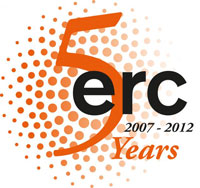 The European Research Council, which funds outstanding researchers throughout Europe, is 29 February 2012 turning five. To celebrate this milestone, the ERC is organising a two-day event starting today in Brussels with first-class research personalities from around the world. The event “5 Years of Excellent IDEAS” will chart the ERC's achievements to date; it will allow participants to share their thoughts on excellence and "brain circulation" in the global scientific landscape and will deem how crucial frontier research is for Europe's growth and competitiveness.
The European Research Council, which funds outstanding researchers throughout Europe, is 29 February 2012 turning five. To celebrate this milestone, the ERC is organising a two-day event starting today in Brussels with first-class research personalities from around the world. The event “5 Years of Excellent IDEAS” will chart the ERC's achievements to date; it will allow participants to share their thoughts on excellence and "brain circulation" in the global scientific landscape and will deem how crucial frontier research is for Europe's growth and competitiveness.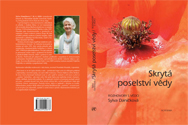
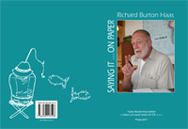
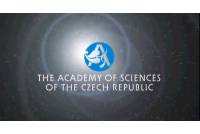
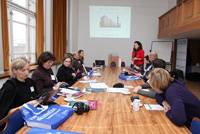

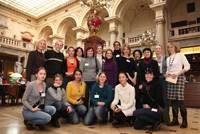
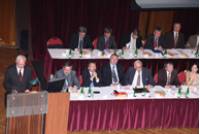
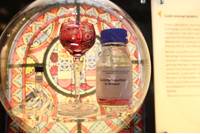
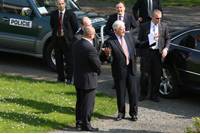

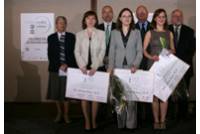
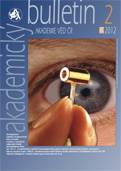

 Česky
Česky
